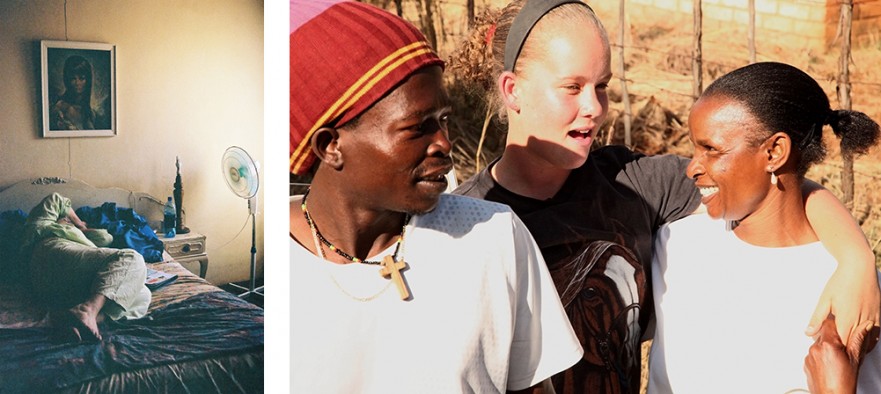I, AFRIKANER. Directed by Annalet Steenkamp. Shown at the kykNET Silwerskerm Festival in Camps Bay 27 – 30 August 2014.
STEYN DU TOIT
Lives are laid bare and a filmmaker’s identity is explored in Annalet “Makkie” Steenkamp’s I, Afrikaner. Shot over eight years, no other film took me on such an intensely personal and emotional journey through my own past/present as this documentary did during last week’s kykNET Silwerskerm Film Festival in Camps Bay.
Winner of the Best Direction in a South African Documentary award at this year’s Durban International Film Festival (DIFF), it follows four generations of Steenkamp’s family – all farmers from the Free State – as they come to terms with the country’s ever-changing sociopolitical landscape. It also chronicles their daily battle for survival against the elements as well as our high level of violent crime.
The film features a strong narrative at times reminiscent of a nonfiction novel, and through Steenkamp's lens the viewer gets to meet, and grow close to her salt-of-the-earth farmer grandfather, her witty and wise grandmother forced to move to town following a traumatic experience, her brother and sister-in-law trying to find a safe environment in which to raise their children, and the joy that is her high school aged niece, Shanel, who speaks fluent Sotho and who represents the kind of hope we desperately need as a nation. "Some people think other people's blood is not the same as ours,” she tells Steenkamp at one point. “Although we all have the same red blood."
While political issues inevitably arise as Steenkamp’s relatives engage with, and are confronted by the reality of present-day South Africa, this is not a political film. Instead, it is the deeply personal, often heartbreaking story of one family – representative of a larger community – trying to make the best of the hand that life has dealt them: a family not without fault and stubbornness. A family with nowhere else to go.

Against the backdrop of visual metaphors and beautiful cinematography depicting the land that the Steenkamps have grown to love so much, we are allowed to share some of their most intimate moments. These include parties, weddings, separations, deaths as well as many sleepless nights with firearms by bedsides in preparation for a very likely home invasion.
It is through this unfiltered honesty that we as viewers grow to love the Steenkamps deeply over the course of the film. By not remaining objective and by engaging with them both on and off screen, Steenkamp makes the point that that no two people are, or should ever be considered alike just because they share a cultural background. Not even if they come from the same family. She is living proof of that.
Those who grew up in the kind of traditional Afrikaner culture depicted here, however, will connect with I, Afrikaner on an even deeper, more emotional level. In Steenkamp's grandmother’s voice I heard my own ouma several times, for instance, or on the church benches I saw the family that I too had to sit with every single Sunday for the first 18 years of my life. The result is an incredibly nostalgic viewing experience that cuts to the bone, and that deeply resonated with me.
 SLiPStellenbosch Literary Project
SLiPStellenbosch Literary Project